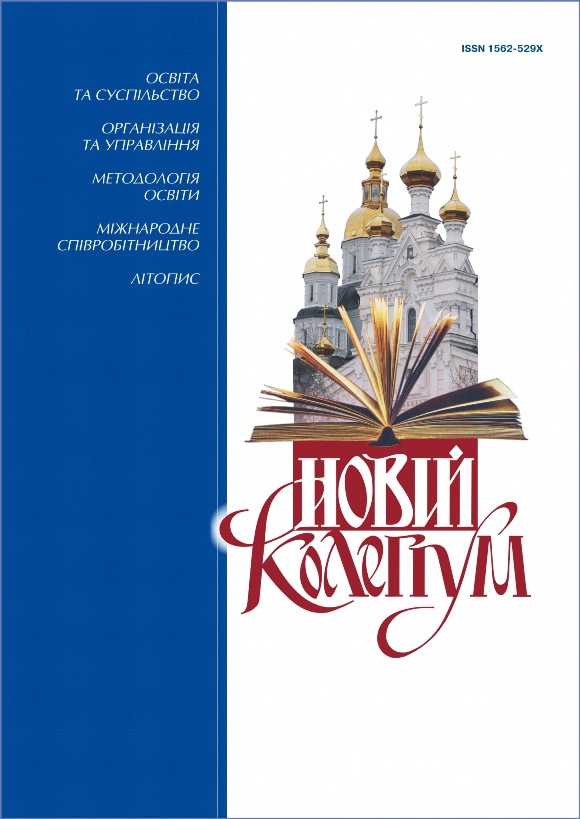The components of content of elementary education at three stages of elementary education development in Great Britain in the 19 th century
DOI:
https://doi.org/10.30837/nc.2021.3.59Keywords:
content, elementary education, content components, elementary education schools, development of elementary education, Great BritainAbstract
The article investigates the issue of the experience in theory and practice of elementary education organizing in Great Britain during the 19 th century. Special attention is given to elementary education content. The role of changing content at three stages of elementary education development has been defined according to social and political, cultural and pedagogical prerequisites. The content components of elementary education at three stages of elementary education development in Great Britain in the 19 th century have been analyzed. Lack of common, compulsory and legal content at first two stages has been proved. Dependence of elementary education content on the types of elementary education schools and pupils social classes of Great Britain of the 19 th century has been determined. General orientation of elementary education content at three stages of elementary education development has been identified. It is concluded that content of elementary education at three stages has its own characteristics. The main disciplines are Writing, Arithmetic, Reading Catechism and Craft. Secondary disciplines are the Sciences. Condensed character of elementary education at the first two stages has been denoted. Elementary education content was characterized by case studies on English, it was based on work education and teaching of writing, reading and arithmetic at the third stage. It was a lack of common curriculum in the elementary education schools at first two stages. One of the significant disadvantages of elementary education content at the first two stages is the prohibition of learning national languages at schools of Scotland and Wales. Elementary education content at the third stage has been expanded by compulsory curriculum in English writing, reading and arithmetic for all elementary education schools throughout the country. Sciences and Art disciplines have been introduced at the third stage. Compulsory religious education at the third stage has been prohibited for all elementary education schools. Content of elementary education at the third stage has been concretized by elementary education schools committees, Ministry of People Education and its commissions.
References
Гамель И. О способах взаємного обучения по системам Белла, Ланкастера и других. С.-П. : Тип Глазунова, 1845. 179 с.
Мокроменко О.В. Розвиток елементарної освіти у Великій Британії ХІХ ст. : Рукопис. Дисертація на здобуття наукового ступеня кандидата педагогічних наук за спеціальністю 13.00.01. Харків, 2011. 196c.
Adamson J.W. English Education 1789 – 1902. Cambridge: Cambridge University Press, 1930. 220 p.
Balfour G. The Educational System of Great Britain. Oxford: Oxford University Press, 1903. 400 p.
Barnard H. C. A History of English Education from 1760. London: University of London Press, 1961. 150 p.
Bartley G. The Schools for the people, containing the history, development and present working of each description of English school for the industrial and poorer classes. London: Daldy, 1871. 582 p.
Bedarida F. A Social History of England 1851 − 1990. ; translated by A.S. Forster. London, New York: Rontlege, 1991. 200 p.
Cubberley E. History of Education. The USA, Boston, 1928. 700 p.
Greenough J. The Evolution of the Elementary Schools of Great Britain. London: University of London Press, 1903. 205 p.
Horn P. Education in Rural England 1800-1914. London: University of London Press, 1978. 368 p.
Lawson J., Silver H. A Social History of Education in England. London: University of London Press, 1973. 210 p.

